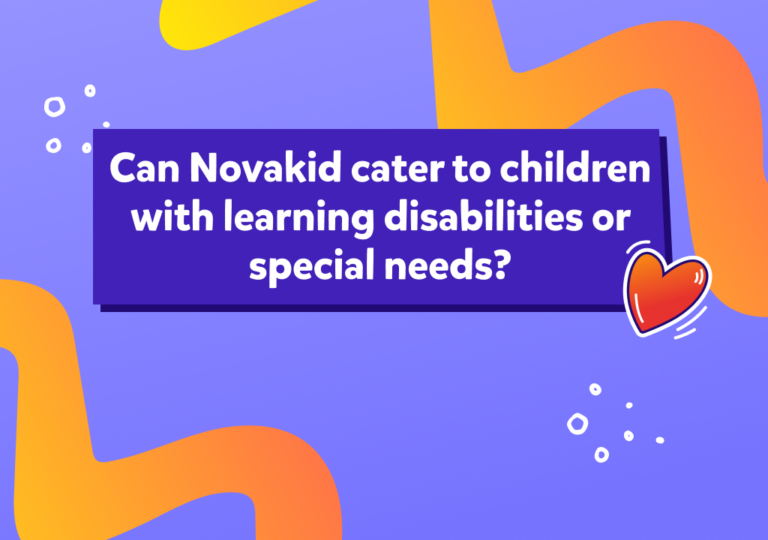Essay writing is an important skill for anyone learning English, since it can boost vocabulary, grammar, help develop critical thinking and organize thoughts. By following a simple process you can support your child through each step.
Why Your Child Is Not Improving in English—And How to Fix It
Have you been wondering why your child isn’t making much progress in English, even after months of classes or practice? Don’t panic, you’re not alon, and neither is your child. This is a common concern for many parents. The good news? There is a way forward. Understanding how to improve English just takes the right mix of support, fun, and consistency.
Kids between ages 6 to 12 learn best when they feel confident and are having fun. If your child isn’t speaking up in class or struggles to express things, it might not be about ability but maybe a confidence issue instead. That’s why things like language development activities for 6–12 year olds and playful conversation are so important.
One of the most powerful ways to help? Enroll them in an English communication course designed to build skills in a fun, interactive way. Just like our lessons at Novakid! When kids get regular speaking practice and feel supported, they begin to bloom. Since we know how big of an issue and concern this can be, we are here to help. Keep scrolling to see what might be slowing your child’s progress, learn practical tips, and how to help them be more confident when speaking.

Common Reasons Why Kids Struggle With English
There are a few common reasons why kids might have trouble with English. One reason is that they don’t use English outside of school. If they don’t practice speaking, reading, or listening to English at home or with friends, it’s harder for them to get any better.
Another reason is not feeling confident when speaking. Many kids feel shy or nervous when talking in English, which makes them hesitant to use new words. Without practicing in real conversations, they don’t build the confidence they need.
Some kids also don’t get enough exposure to new words in fun ways. If they only learn words by memorizing them or doing boring exercises, it’s hard to remember and use them in real life. Learning through games, songs, and stories can help a lot!
Lastly, some kids rely too much on memorizing words instead of using them in real conversations. English is best learned when it’s used in talking or writing, not just from books. When kids practice using English in everyday situations, they start to remember it better.
How to Improve English: Simple Solutions That Work
Now that we know the common reasons why kids struggle with English, let’s look at some simple solutions to help them get better. These steps can make a big difference in building their confidence and helping them practice in meaningful ways that actually makes them want to learn more.
Encourage Them to Speak English Daily
One of the best ways to help kids improve is by trying to get them to speak English every day. Even short conversations at home can make a bigger difference than what you might think. You don’t need to have long chats—just asking questions like, “What did you do today?” can get them speaking and practicing.
It’s important not to correct every mistake they make. Instead, focus on boosting their confidence.
Enroll Them in an English Communication Course
Taking an English communication course can be really helpful for kids. These courses focus on improving speaking and listening skills, which are key to becoming fluent. By practicing with others, kids can overcome their fear of making mistakes and become more confident in their speaking.
When looking for a good course, choose one that offers plenty of speaking practice, has a fun format.
Make Reading a Daily Habit
Reading is always a fun way to learn, and doing it every day helps kids learn new words and understand how sentences are built in English. Choose books that are right for their age and interests so they stay engaged.
Let them read out loud to practice pronunciation and fluency. Reading aloud helps kids get comfortable with new words and sounds,
Boost Confidence: How to Be More Confident When Speaking
Building confidence is super important for kids to feel comfortable speaking English. Use positive reinforcement when they try new words or speak in full sentences. Celebrate small wins, like learning five new words or speaking for a longer time without stopping.
The more they practice with different people, the more confident they will become!
Language Development Activities for 6–12 Year Olds
In addition to regular practice, creative language activities can make learning English even more fun for kids or beginner learners. Here are some activities that can boost their vocabulary, speaking, and writing skills:
Creative Writing Prompts or Journaling
- Encourage kids to write stories or daily journal entries.
- Start with simple prompts like, “Write about your favorite animal” or “What would you do if you could fly?”
- Begin with one or two sentences a day and gradually build writing skills.
Storytelling with Picture Cards
- Use picture cards to inspire storytelling.
- Ask kids to create a story using images of animals, places, or objects.
- This activity helps with sentence structure and vocabulary in a fun, creative way.
Vocabulary Treasure Hunts
- Turn learning vocabulary into an exciting game by hiding clues or words around the house or yard.
- Examples: “Find something that starts with the letter ‘B’” or “Find a word that describes how you feel when you’re happy.”
- This encourages kids to recognize and recall words in an interactive environment.
Simple Debates or Role-Plays
- Have kids participate in debates or role-play situations.
- Example: “Which is better, ice cream or cake?” or acting out a restaurant scenario.
- This helps kids practice speaking, forming sentences, and expressing their opinions in English.
Daily Journal Entries (1–2 Sentences to Start)
- Encourage kids to write short journal entries daily.
- Start with 1–2 sentences about their day or feelings.
- This habit helps with writing fluency and increases confidence over time.
To wrap up, helping your child improve their English is about making learning fun and happening every day! By encouraging them to speak, read, and write in English often, using fun activities, and signing them up for a good course, you can help them feel more confident and get better at English. With practice and the right help, they will start using English more easily!
See how Novakid helps bilingual and multilingual children develop strong English skills with fun, child-friendly online lessons.
Master conversational English with practical tips, fun activities, and daily speaking practice—perfect for learners and parents helping their kids.
In this article we explain how to test English proficiency in kids and what are the best ways to make the process of tests comfortable for young learners.
Discover how Novakid’s teaching strategies for special needs students, their interactive platform, and personalised ESL lessons, help children with learning difficulties to succeed online.
In this article we explain what does it mean to be fluent in English, how to become one and how many words you need to know on every level from basic communication to advanced speaking.









































